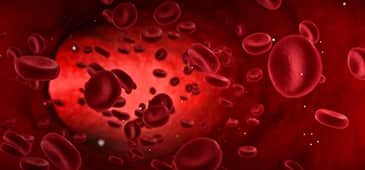NAFLD is the most common liver disease in the U.S. and can progress from simple fat deposition to NASH, cirrhosis, liver failure, and even liver cancer, sometimes without cirrhosis. Treatment emphasizes weight loss through diet and exercise, with vitamin E for some NASH patients and ongoing clinical trials for new therapies.

Researchers at Ohio University showed vitamin D3 can aid repair of cardiovascular damage from atherosclerosis, diabetes, and hypertension. Using nanosensors, they found D3 stimulates nitric oxide and reduces oxidative stress in endothelial cells, suggesting it may help restore damaged cardiovascular tissue.
Scientists identified WAY-316606, a drug originally developed for osteoporosis, that promotes human hair growth by antagonising SFRP1, a brake on hair follicle development. In organ-culture tests using scalp follicles from over 40 patients, WAY-316606 stimulated hair growth similarly to Cyclosporine A, suggesting a potential non-immunosuppressive therapy for androgenetic alopecia pending clinical trials.
A research team is developing an oral infrared-lightactivated imaging agent that lights up breast tumors to better distinguish malignant from benign lesions, potentially reducing unnecessary procedures and improving detection. In mice, the dye attached to a repurposed drug travels through the body and makes tumors glow under infrared light, offering a safer alternative to mammograms by avoiding intravenous dyes.
An observational study of over 14,000 UK women found that diet may influence the age of natural menopause, with refined carbohydrates (pasta and rice) linked to about 1.5 years earlier menopause and oily fish and fresh legumes associated with more than 3 years later menopause. The researchers caution that causality cant be established and that recall bias and sample characteristics may affect results, though menopause timing has important health implications.
Early menopause may be linked to a higher risk of heart disease and premature death, a new analysis suggests. Dutch researchers reviewed 32 studies involving more than 300,000 women to reach this conclusion.
An 88-year-old man with retinitis pigmentosa becomes the second-oldest person in the U.S. to receive the Argus II bionic eye, regaining sight after more than five decades in darkness. He is learning to interpret the new visual input through therapy and hopes to use the device to improve mobility and enjoy everyday experiences again.

Young athletes face high rates of injuries, with bone injuries among the most common, highlighting the importance of nutrition for developing bones. Prunes supply nutrients like vitamin K, potassium, copper, and boron that support calcium balance and bone mineralization, and evidence suggests prune consumption can help maintain and improve bone health.
Menopause is the period after a year without a period, caused by declining hormones and typically occurring around age 51, with symptoms such as hot flashes, insomnia, and mood changes that can last several years. A healthy lifestyle, regular medical care, and appropriate treatments can help manage symptoms and reduce health risks.
A study in mice found that the anti-inflammatory drug mefenamic acid reversed memory loss and brain inflammation in an Alzheimers disease model by targeting the NLRP3 inflammasome. Researchers caution that effects in humans are unknown and plan early-phase II trials, highlighting the potential of repurposing an existing drug to accelerate dementia drug development.


